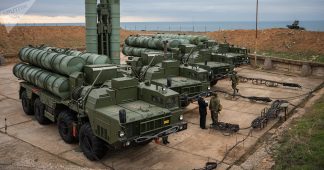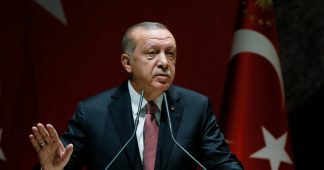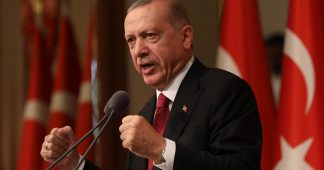By David Wainer
The passage of sanctions legislation against Turkey in the U.S. House of Representatives underscores a sober reality about U.S. ties to a key NATO ally: Things can still get worse.
President Donald Trump’s praise for Turkey’s role in helping U.S. forces kill the head of Islamic State and his plan to host President Recep Tayyip Erdogan at the White House next month aren’t enough to mask the view in Washington that Turkey’s actions increasingly conflict with American and NATO interests.
Frustration over Turkey’s military offensive in northern Syria — even if it was green-lit by Trump, as his critics contend — as well as its expanding ties to Russia, highlighted by the purchase of a Russian missile defense system, and its worsening relations with Israel are all undermining support for the Turkish leader in the U.S.
“As long as Erdogan is in charge of Turkey we need to accept the reality that we’re not dealing with a friend,” said Richard Haass, president of the Council on Foreign Relations, who has argued for reducing U.S. reliance on Turkish air bases and reviewing nuclear weapons storage there.
Turkey is increasingly facing problems much like those Saudi Arabia has had in Washington since the killing of Jamal Khashoggi last year and the humanitarian disaster caused by its war in Yemen — its backing inside the Oval Office isn’t translating into support anywhere else.











